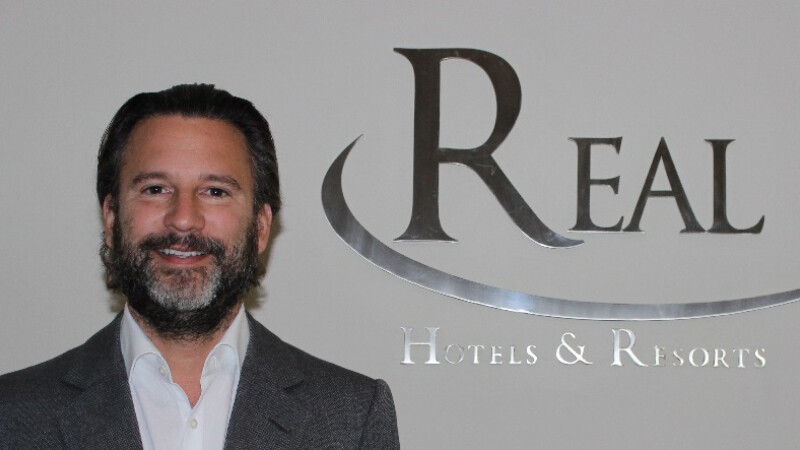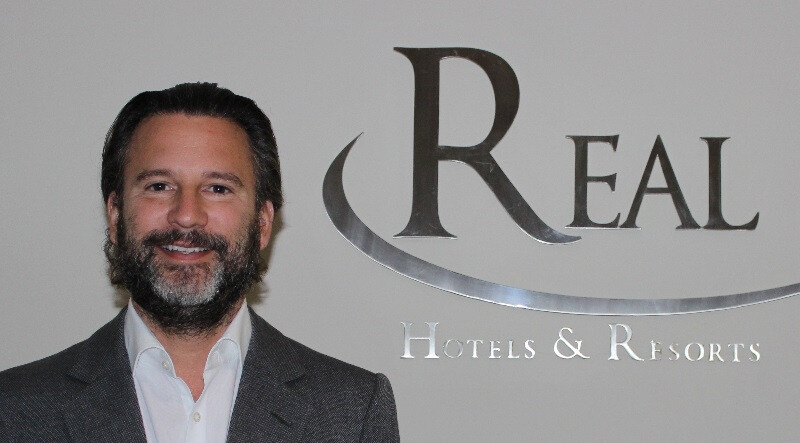Interview with Fernando Poma, Vice Executive President of Real Hotels and Resorts
We ask Fernando Poma, from Grupo Poma, one of Central America’s largest corporations, about the best investment opportunities in the region…

Grupo Poma is a Central American giant, what are the main businesses that it’s involved in?
Fernando Poma: We have four operating businesses, an investment office operating out of Miami in the US and a non-profit division. The first operating business is Real Hotels and Resorts, which owns and operates 25 hotels across the US, Central America, Colombia and the Dominican Republic. It does this through three main brands: Intercontinental, Marriot and Choice Hotels.
Then we have Grupo Roble, our real estate division, which helps to build the hotels but also creates and manages shopping centres across Central America. We have 20 throughout the region, including one that we are building in Guatemala. Grupo Roble also develops office space and housing – in fact we’ve built around 50,000 homes.

The other two businesses are car related. Excel Automotriz is our car dealership division, which has around 30% of the Central American market, with a presence in every single country and a portfolio of 15 different brands. That is supported the final division, AutoFacil, which gives financing for people who want to buy cars.
The other two parts of the group aren’t operating businesses but they play an important role. We have an investment office in Miami that allows us to invest in various financial vehicles. And we also have Fundación Poma, which is a non-for-profit organisation that focuses on improving education and health in Central America.
Guatemala has plenty of good shopping centres developed by local players; what can you add as an international developer?
FP: OK – across Central America Grupo Roble has built multiuse complexes, with an integrated shopping centre, office space and hotel. But despite the fact that it’s the biggest capital city in the region, we still haven’t done that in Guatemala yet. On reason is there are a lot of local Guatemalan developers that have already built sophisticated developments. It’s also been hard to find the right land in the right place. But now we’ve done that we’re making a significant investment in making this project happen. Ultimately if we’re going to be successful we’ll need to offer Guatemalans something they haven’t got yet, so we’ll be looking at bringing new retailers to the country.
"We have projects in 12 different countries across Latin America and the Caribbean, so doing something in Guatemala is not a big step…"
And although officially we are international investors, really Guatemala is as close to El Salvador as you can get. Not just geographically but culturally too. We have projects in 12 different countries across Latin America and the Caribbean, so doing something in Guatemala is not a big step.
Guatemala has been attracting plenty of negative press recently; why are you investing there?
FP: Look the first thing to realise is that all of Central America and Latin America has gone through similar problems at one point or other to those that Guatemala is experiencing today but we’ve still seen people make money with successful projects. Secondly, I don’t think what’s happening is a bad thing. In fact it’s a positive. The Guatemalan people are sick of corruption and they want to see their country move forward – so these protests are a step in the right direction.
Actually the political situation for investors in Guatemala is quite good. The country is not polarised, unlike here in El Salvador, where there is a big difference in opinions. If you look at the Guatemalan elections it’s a choice of centre-left, centre or centre-right, it doesn’t look like you’re going to get an extreme left or extreme right government. So there is a broad consensus in the country about the economic model and that is good for investors.
But the most important factor for us is that there is a good business environment. One of the most important distinctions that investors must make is between the operational business and the financial business. You can have an excellent operation that is making lots of sales but end up with no profit if the financials don’t work. And the main factors for the financial side are the cost of borrowing money locally and the local taxes that your business is subject too. That’s why you don’t see so many of the big international hotel names in Brazil. Because it has good operating conditions but bad financial ones. Guatemala on the other hand offers good operating conditions and solid financial ones.
You make it sound very tempting; so how can international investors get involved?
FP: Let me be frank – it’s not easy. If you’re coming from another country, especially from another region, the first thing you need to do is to get a good local team that knows how things work, the procedures and the permits etc. You need someone that you can trust, that has the experience and that can make the deal happen.
So can investors work with you on these projects?
FP: No way! [smiling] Good deals are hard to find nowadays so when we get one, we want to take care of it ourselves. We don’t really need international money. Twenty years ago there were loads of no-brainers – deals that just stood out. But now there are less of these outstanding opportunities. For example, 20 years ago there were no multiuse complexes in Central America so there was lots of demand for them while land was available and cheap. Now there is plenty of competition and land prices have scarcer and more expensive.
"Ultimately the value of land depends of what you can do with it…"
Land pricing really is an issue. There are some South American cities where land costs $10,000 a square metre so very few projects can make any money with land that costs that much. Ideally we want land to represent around 10% to 15% of a total project cost but at those prices it is 30% to 40% which doesn’t really make sense for us.
Ultimately the value of land depends of what you can do with it but sometimes there is a dislocation between the value of the land and the price of the land because there is nothing you can really do on it that makes sense any more at those prices.